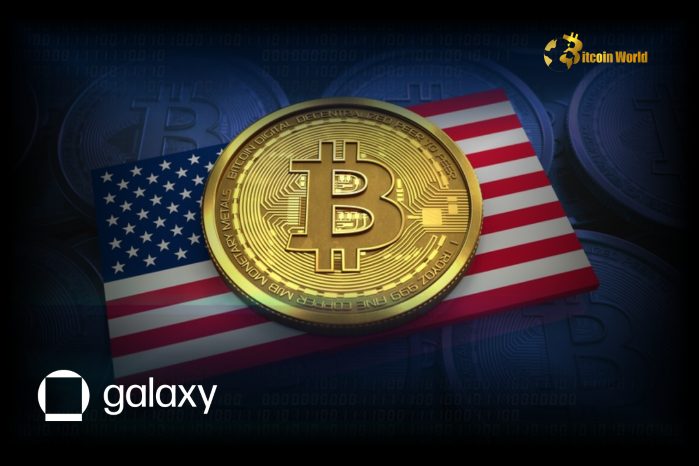Galaxy Digital: U.S. Unlikely to Buy Bitcoin in 2025, Focus on Existing Holdings
Research by Galaxy Digital, a crypto-focused financial services firm, predicts that the U.S. government will not purchase additional Bitcoin (BTC) in 2025. Instead, policymakers may leverage the country’s existing Bitcoin stockpile as part of a potential Bitcoin reserve policy, according to a Cointelegraph report.
Current U.S. Bitcoin Holdings
- The U.S. government holds approximately 183,850 BTC, valued at $17.36 billion as of today.
- These holdings primarily stem from:
- Seizures of illicit funds, such as the Silk Road case.
- Auctioning of confiscated Bitcoin, which contributed to its reserve.
Proposed Bitcoin Reserve Policy
1. The Bitcoin Act 2024
- Senator Cynthia Lummis has introduced the Bitcoin Act 2024, which proposes:
- Accumulating 1 million BTC over five years.
- Purchasing 200,000 BTC annually, creating a substantial Bitcoin reserve.
2. Strategic Importance of Bitcoin Reserves
- Advocates argue that a national Bitcoin reserve could:
- Diversify the country’s financial assets.
- Act as a hedge against inflation.
- Strengthen U.S. leadership in global digital asset markets.
Why the U.S. Might Not Buy Bitcoin in 2025
1. Leverage Existing Holdings
- Galaxy Digital suggests the government may rely on its current Bitcoin stockpile, strategically utilizing it rather than expanding it through new purchases.
2. Policy Deliberations
- Ongoing debates about Bitcoin’s role in national reserves might delay significant action.
- Skepticism among policymakers regarding Bitcoin’s volatility and regulatory implications.
3. Alternative Approaches
- Instead of purchasing, the government could explore using Bitcoin for:
- Backing a digital dollar.
- Supporting financial aid programs or blockchain initiatives.
Potential Impacts of the Bitcoin Act 2024
1. Market Influence
- If the U.S. commits to buying 200,000 BTC annually, it could:
- Drive demand and increase Bitcoin prices.
- Set a global precedent, encouraging other nations to follow suit.
2. Industry Growth
- A formal Bitcoin reserve policy could catalyze:
- Increased institutional adoption of cryptocurrencies.
- Development of blockchain infrastructure within the U.S.
3. Regulatory Considerations
- Policymakers would need to address:
- Tax implications of Bitcoin holdings.
- Security measures to protect the national reserve.
What This Means for the Crypto Market
1. Government Influence
- The U.S. government’s stance on Bitcoin as a strategic asset will significantly influence global market dynamics.
- Speculation about a reserve policy could create price volatility in the short term.
2. Institutional Adoption
- A clear policy framework could encourage private institutions to increase their Bitcoin holdings, further mainstreaming digital assets.
3. Geopolitical Implications
- A national Bitcoin reserve would strengthen the U.S.’s position in the global digital economy, especially as other countries explore central bank digital currencies (CBDCs).
Conclusion
While Galaxy Digital predicts that the U.S. government will refrain from purchasing more Bitcoin in 2025, the possibility of implementing a Bitcoin reserve policy highlights the increasing relevance of digital assets in national economic strategies. Whether through leveraging existing holdings or adopting a formal accumulation plan, the U.S. is poised to play a critical role in shaping the future of cryptocurrency.
To learn more about the innovative startups shaping the future of the crypto industry, explore our article on latest news, where we delve into the most promising ventures and their potential to disrupt traditional industries.
Disclaimer: The information provided is not trading advice, Bitcoinworld.co.in holds no liability for any investments made based on the information provided on this page. We strongly recommend independent research and/or consultation with a qualified professional before making any investment decisions.




